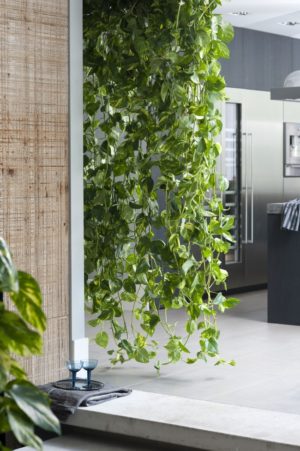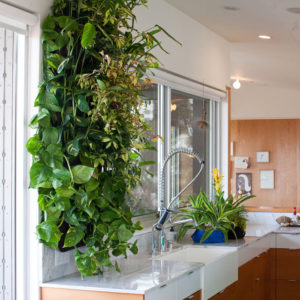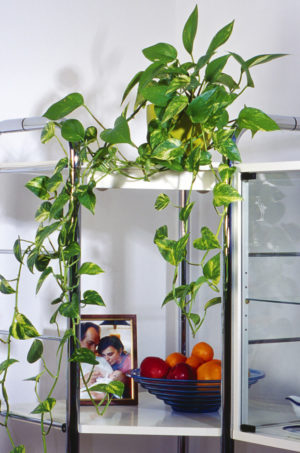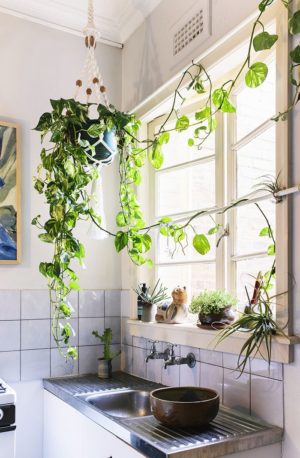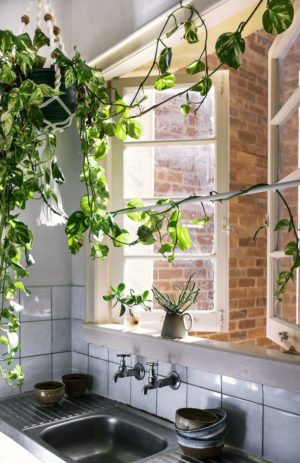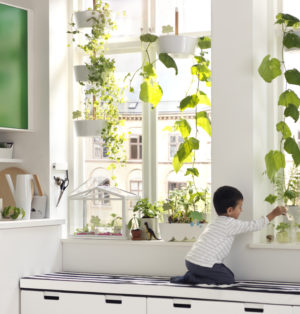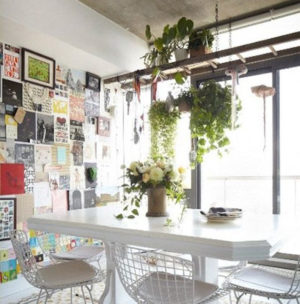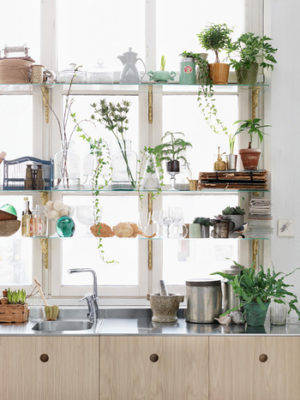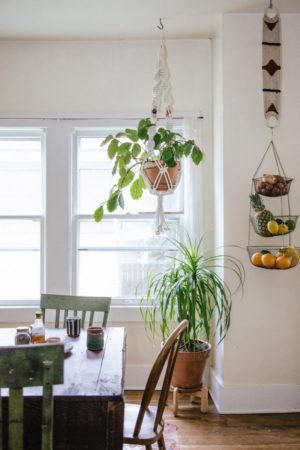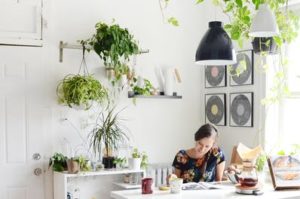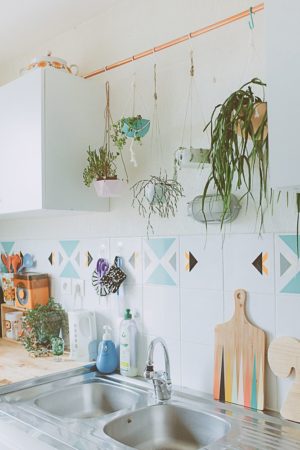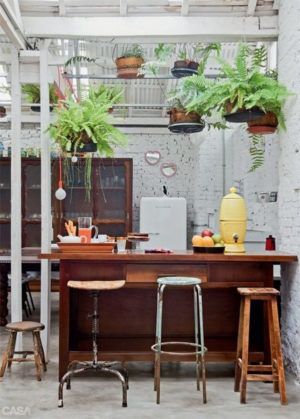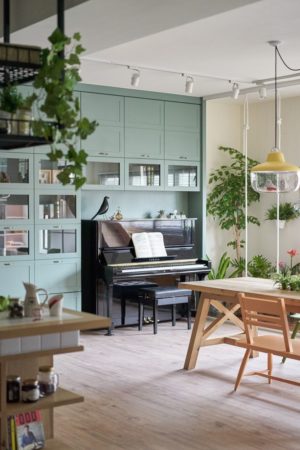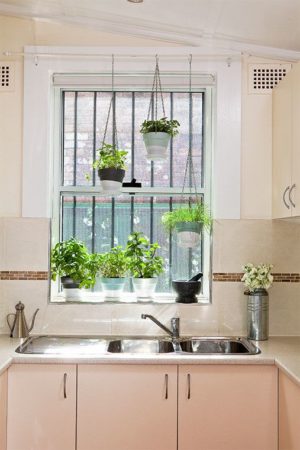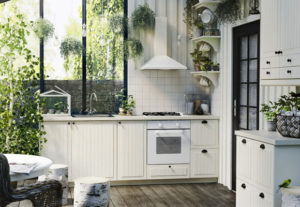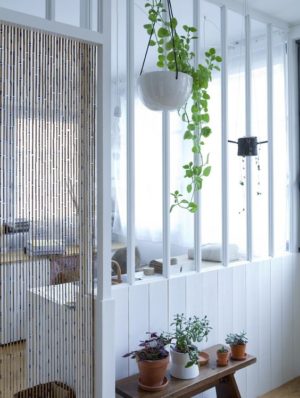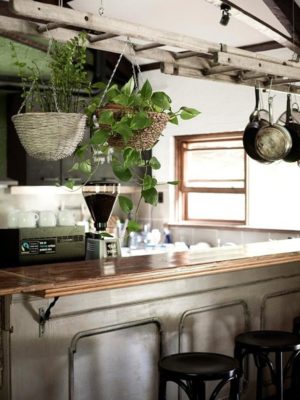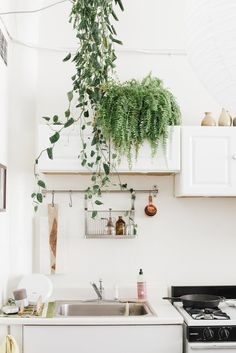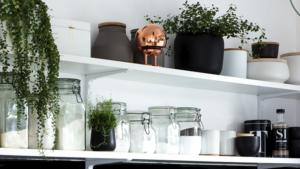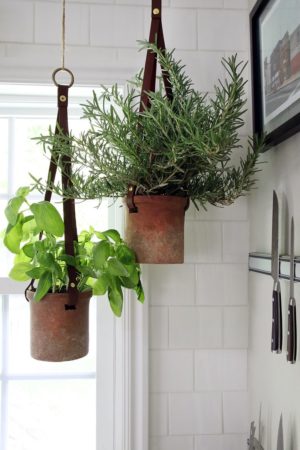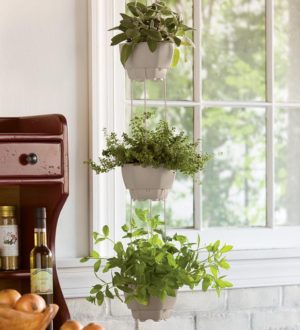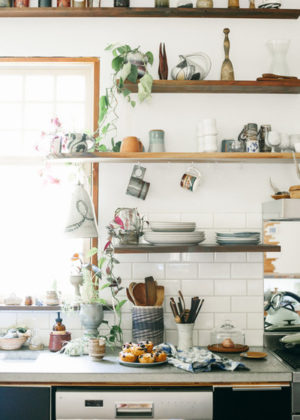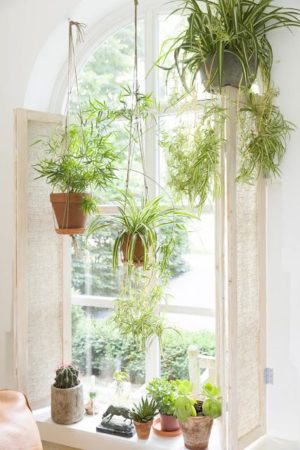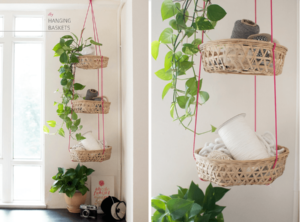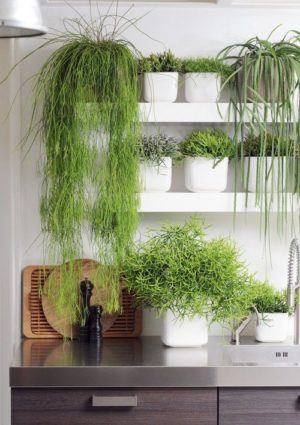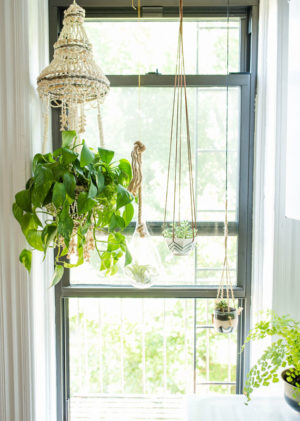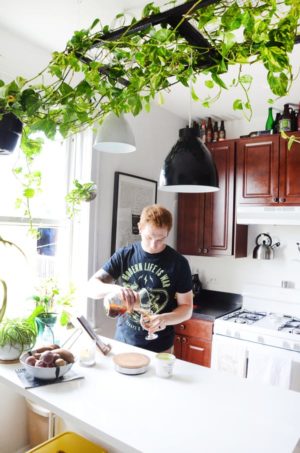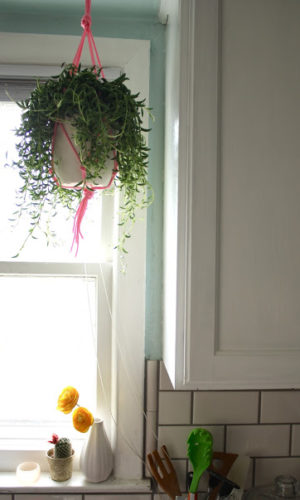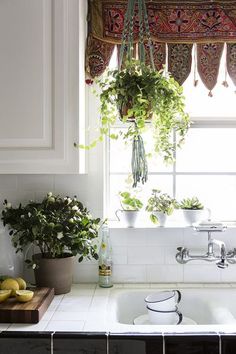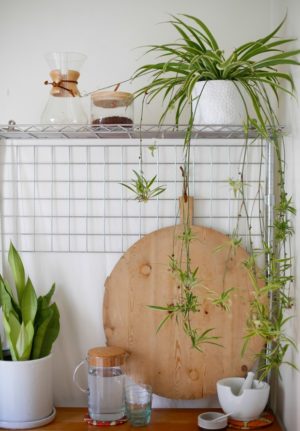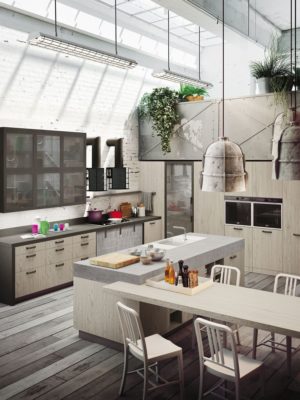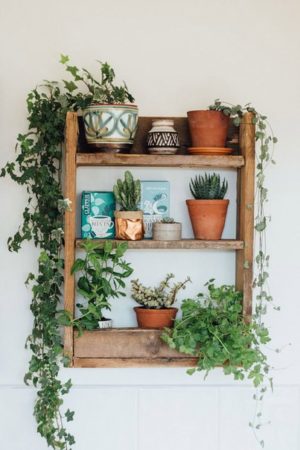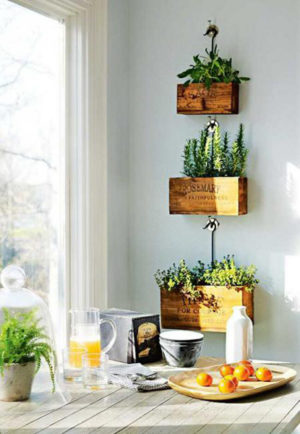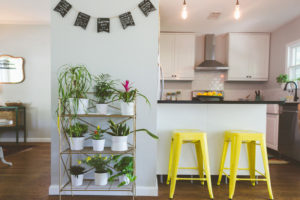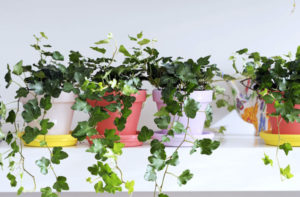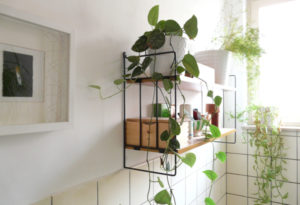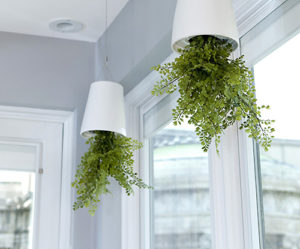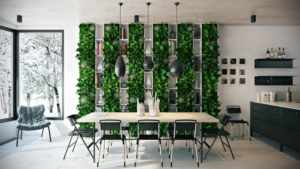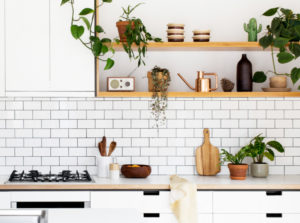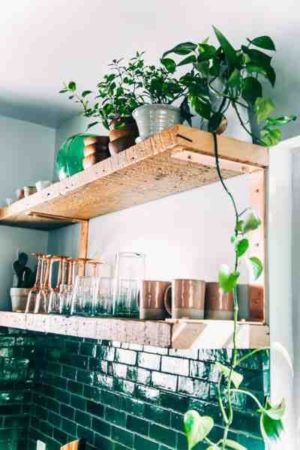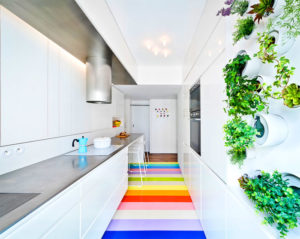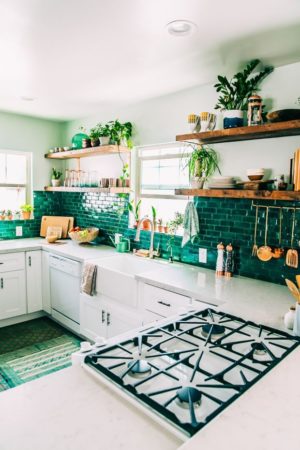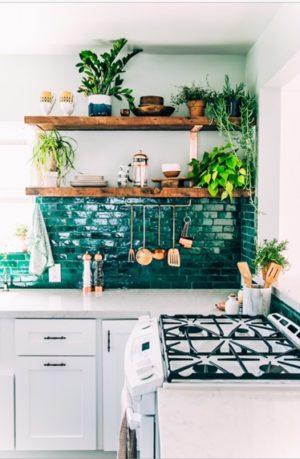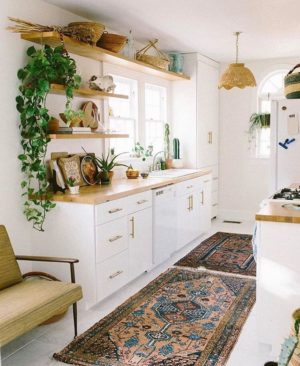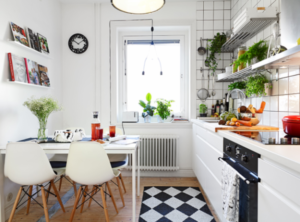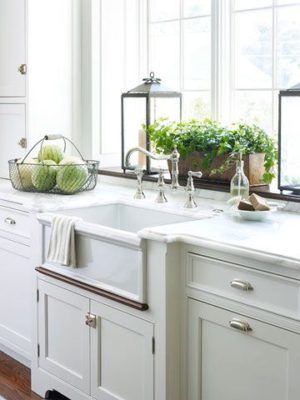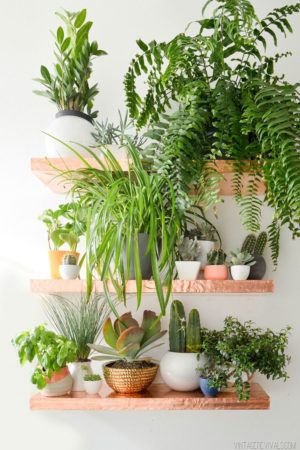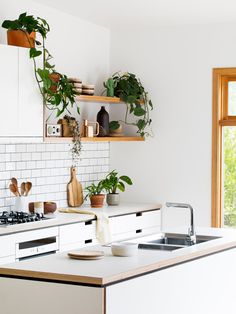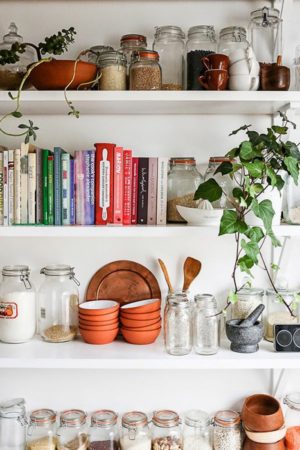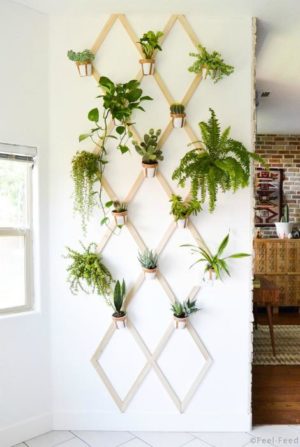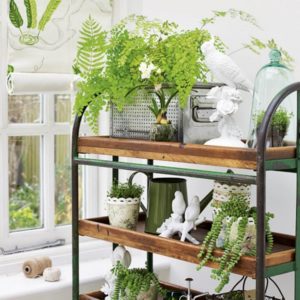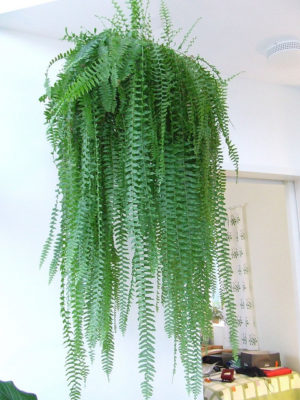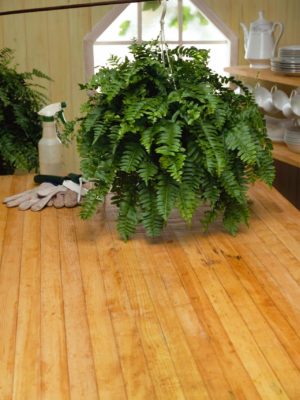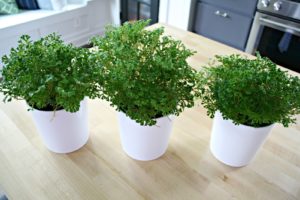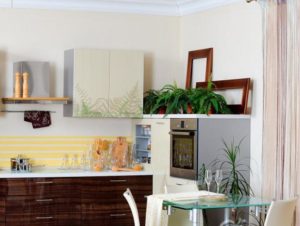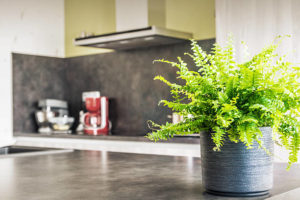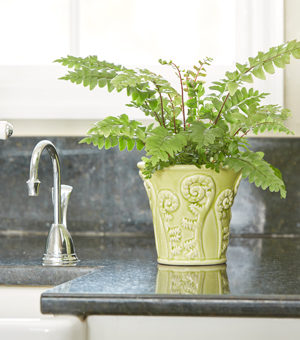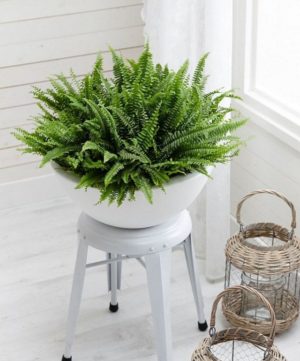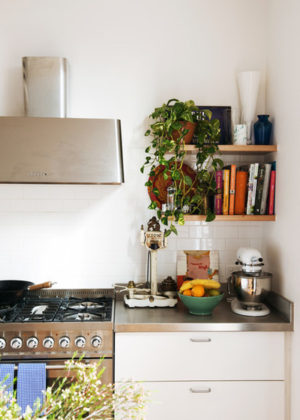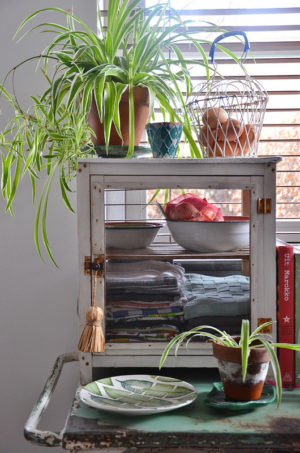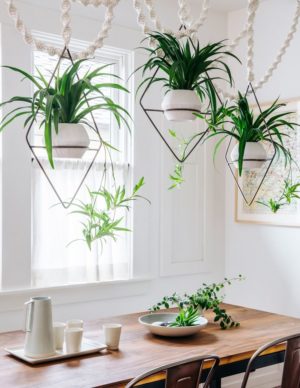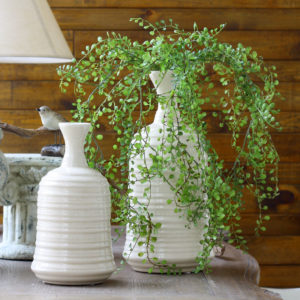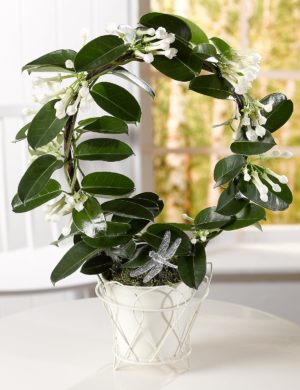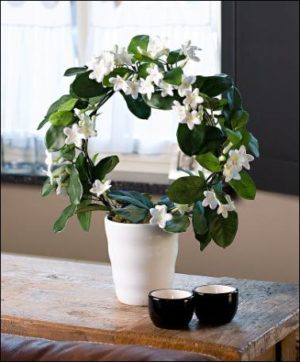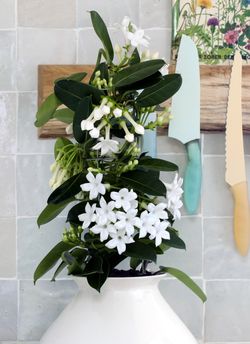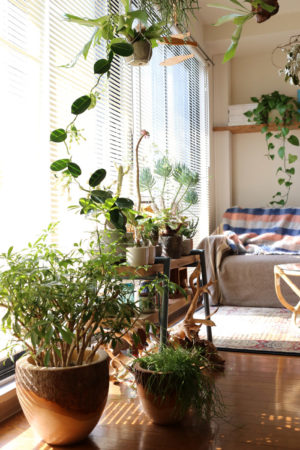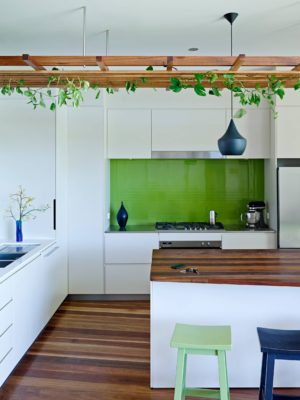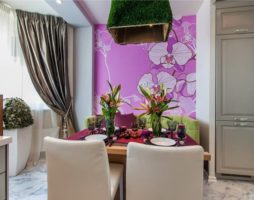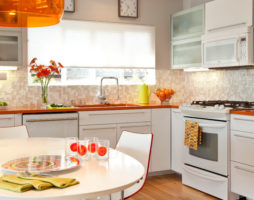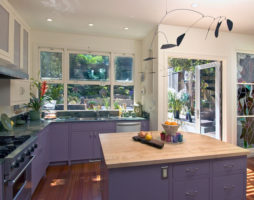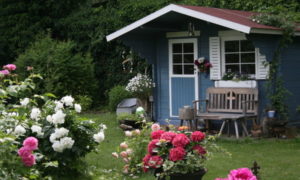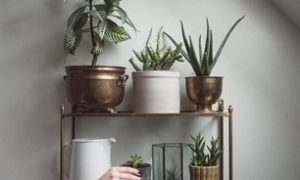Flowers for the kitchen are a living decor, and most importantly, health benefits. Flowers saturate the air with oxygen, purify the air from harmful impurities.
Consider ampelous flowers - in which the branches fall down, they can be placed on shelves, furniture, planted in hanging planters, and also placed on a hill on the table and windowsill.
In this article, we have collected the best ampelous flowers for the kitchen space of an apartment or a country house.
Chlorophytum.
The most unpretentious plant for the kitchen is chlorophytum. Outwardly, it resembles ordinary green grass that grows in the yard.
Classic chlorophytum is a green plant with leaves.
Chlorophytum crested attracts with its bright colors, unusual twisted shape of the leaves, and it also has a white stripe along the leaves.
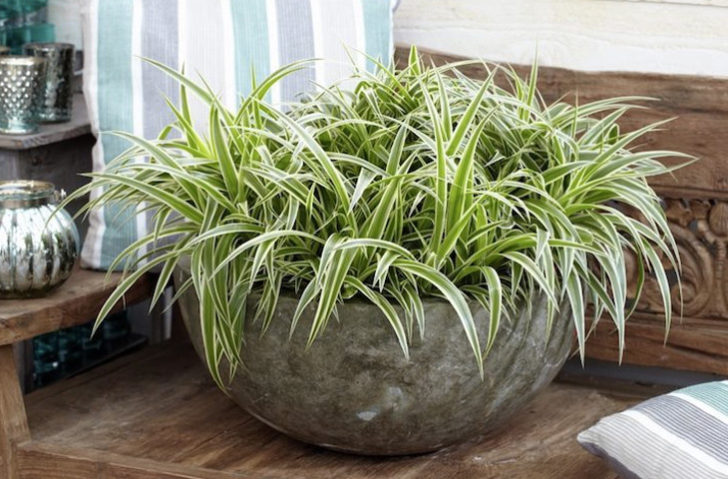
Chlorophytum is the most unpretentious plant for the kitchen
Its root system is small, so small pots are suitable for it.
Lighting.
Chlorophytum does not like direct sunlight the best, diffused light is suitable for it.
Watering.
Chlorophytum is a moisture-loving plant. You can spray it with water from a spray bottle and give it a cold shower in the summer.

Chlorophytum should be sprayed with water from a spray bottle
Transfer.
Every year there are more leaves in the pot, the plant must be transplanted into a larger pot as it grows and its area in it increases.
Reproduction.
With good care, the plant produces twigs with rosettes that can be cut and planted in water so that they give roots or immediately planted in a pot of earth.

Reproduction of chlorophytum
Fern.
Ferns are most commonly seen in the forest, and florists use fern leaves to decorate cut flower bouquets.
The home plant fern grows slowly, gradually growing foliage, the branches of which become long.

Fern in the interior of the kitchen
Lighting.
The fern feels great if you place it in a hanging planter right against the wall, next to the window, avoiding direct sunlight. It is a shade tolerant non-flowering plant.
Watering.
Paportonicus is a moisture-loving plant. You can put it in the bathroom and pour it from the shower with cool water, also spray it from the sprayer. In the summer, we increase watering.
Due to the fact that the plant is moisture-loving, it can be planted in a pot without holes.

Paportonica is a moisture-loving plant.
Transfer.
If the plant is small, then it needs a small pot. If the plant no longer fits in the pot, then it is necessary to transplant the plant into a larger pot.

As the fern grows, it needs to be transplanted.
Reproduction.
The fern resembles a large bush, which actually consists of several. When transplanting a plant, you can divide the fern and transplant each bush into a separate pot.
In gratitude for good care, the plant releases new leaves, at first they resemble thin narrow hairy twigs, and then leaves form on them.

Propagation of a fern by dividing a bush
From dry air to pour ferns dry and fly around.
back to index ↑Scindapsus.
Scindapsus is a perennial liana, a non-capricious plant that can grow in the shade. In the wild, this plant wraps around tree trunks. The people call it "grandmother's flower." Its leaves look like linden leaves.
This plant is familiar to many, it could often be observed in Soviet-era apartments, including in the kitchen. The houseplant gives long branches, so it beautifully decorates an empty wall.
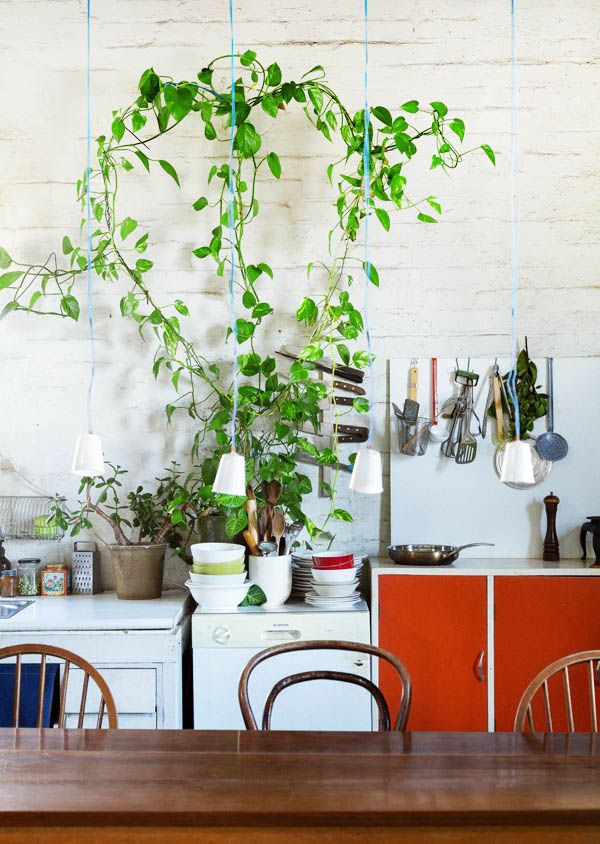
Scindapsus will decorate the wall in the kitchen
The color of the leaves can be different: green leaves, dark green leaves, leaves with spots. The following types are suitable for home floriculture: golden, feathery or painted scindapsus.
Lighting.
Shade-tolerant plant, diffused light is suitable.
Watering.
Scindapsus does not need to be filled with water, otherwise the plant will simply die. It is necessary to monitor the earthen clod so that it is not dry, especially in the summer.
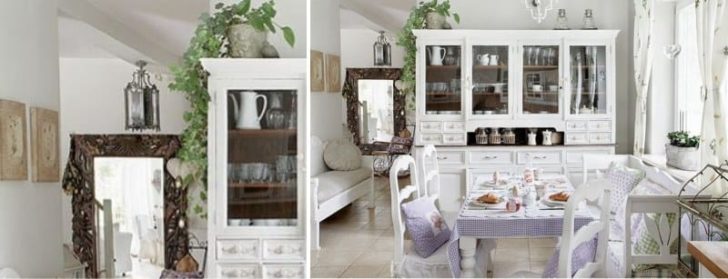
Scindapsus prefers diffused light and moderate watering.
Transfer.
The plant has long branches and can stay in one pot for a long time, because the root system is small. But sometimes, it is still worth transplanting if the plant is cramped in a pot.
Reproduction.
The plant forms aerial roots, you can cut off a small part of the plant and plant it in the ground.
The second option for plant propagation, it is propagated by dividing the shoot. We cut off a part from the plant and plant it in water, over time roots will appear, the plant is ready for transplanting into the ground.
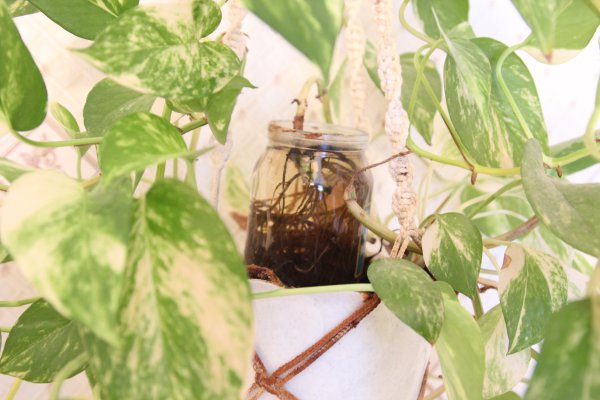
Aerial roots in scindapsus
Tradescantia.
An unpretentious, fast-growing plant, in nature there are many different types of this plant. The leaves can be dark purple, white with green, just green and others.
Rarely blooms indoors.

Tradescantia - unpretentious, fast-growing plant
Lighting.
Shade tolerant plant.
Watering.
In the spring and summer, it needs abundant watering, but you should not flood the plant. The plant loves spraying with water.
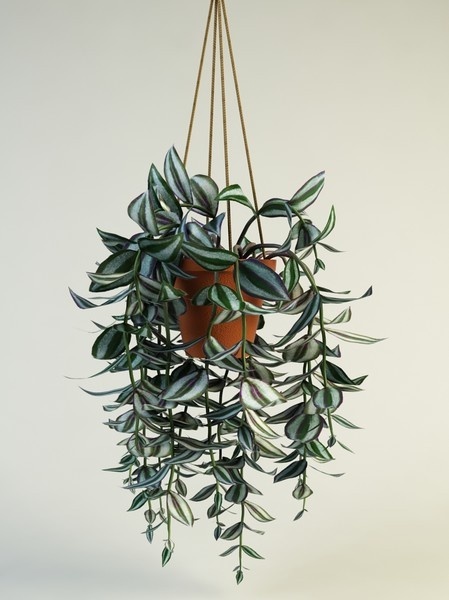
Tradescantia loves spraying with water.
Transfer.
The plant has long branches, can be in one flower pot for a long time. If the plant is crowded, then it should be transplanted into a larger pot.
Reproduction.
Seeds, cuttings, and also possibly dividing the bush. We cut off the stem of the plant, lower it into a glass of water. And after a while roots appear.
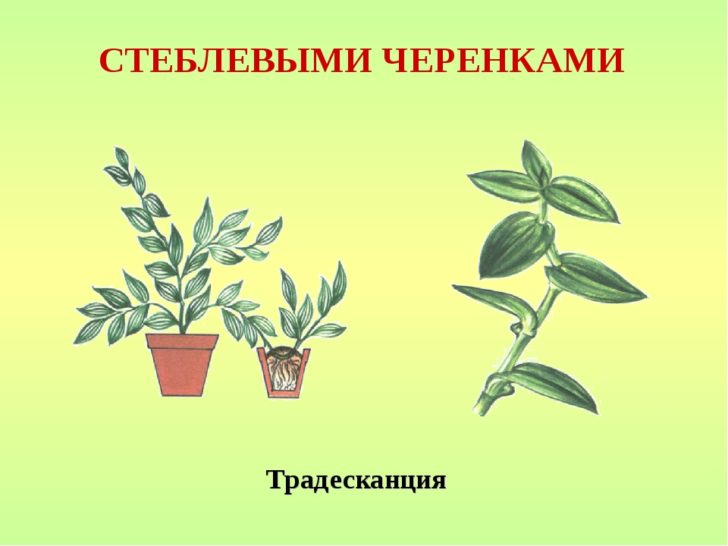
Method of propagation of tradescantia
Often, lovers take the form of tradescantia white-flowered, sillamontana, myrrh-leaved, Blossfeld, zebrin.
back to index ↑Ivy.
This plant is familiar to many, ivy is an evergreen climbing plant. Its leaves are shaped like small maple leaves. Ivy has small leaves, it does not bloom.
Many florists use ivy when decorating rooms, when composing bouquets, compositions, and also for planting in a florarium.
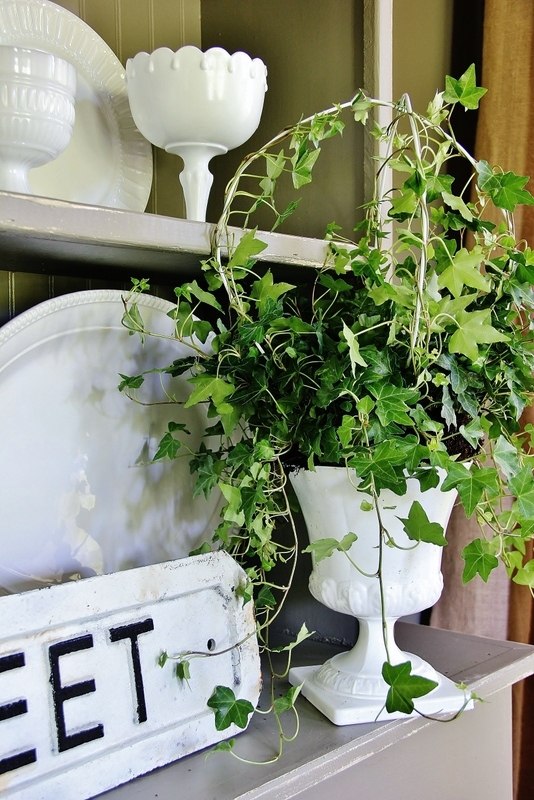
Ivy with a frame to form a composition
For this indoor plant, you can use a frame, guides, and then it will wrap its leaves around this shape. You can make a frame in the form of a heart, a round shape or a frame in the form of a cone and make this plant look like a Christmas tree.
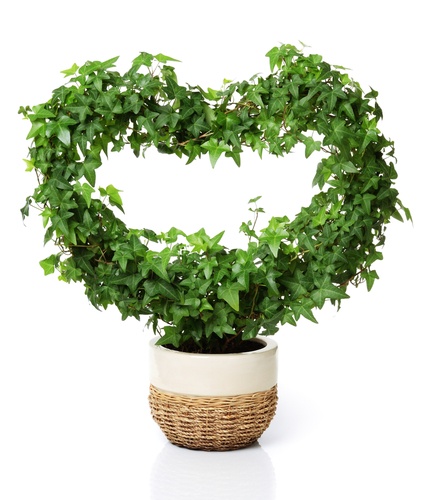
With the help of a frame, ivy can be given any shape.
In cities with a warm climate, with the help of this plant, a hedge is made out, for example, in the Crimea, Gelendzhik, in the Caucasus, you can often see a fence over which ivy grows.
The plant is not afraid of drafts, it can be exposed to fresh air.
Lighting.
In good light, the leaves of the hedera grow, the plant grows actively. Lighting is required in winter.
Watering.
The plant is comfortable when it is showered, sprayed. During the growth period, it must be fed with minerals.
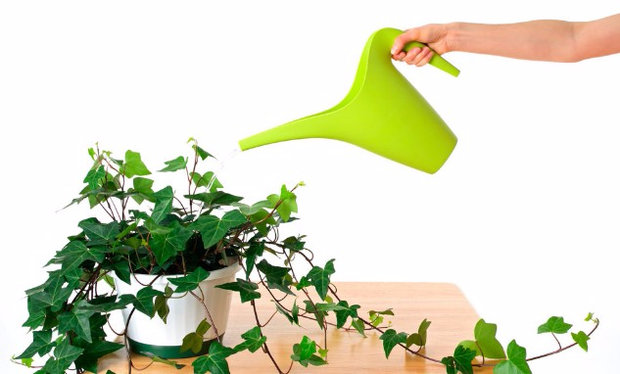
During the growth period, ivy needs top dressing
Transfer.
The ivy plant has a small root system and is sold in stores in small pots. In this pot can be a long period of time.
When transplanting, you need to choose not a deep, but a wide flower pot.
Reproduction.
Cuttings, layering and shoots.
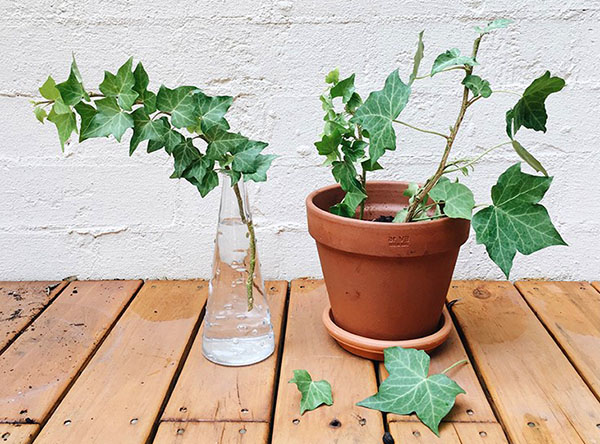
Propagation of ivy cuttings
Stefanotis.
Stephanotis is a climber from Madagascar, indoor "Jasmine", an evergreen, climbing plant. The leaves are oval in shape, the flowers are white with a pleasant aroma.
The plant is fast-growing, unpretentious, needs support.
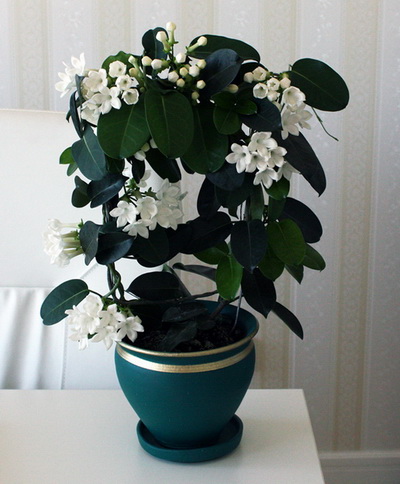
Stephanotis needs support to grow properly.
In cities with a warm climate, you can make a hedge.
Lighting.
Shade from direct sunlight. In winter, additional lighting is needed.
Watering.
Regular and abundant watering. In winter, watering is moderate. Stefanotis loves high humidity, so it needs frequent spraying with water. On hot days, the plant should be placed on a tray with water.
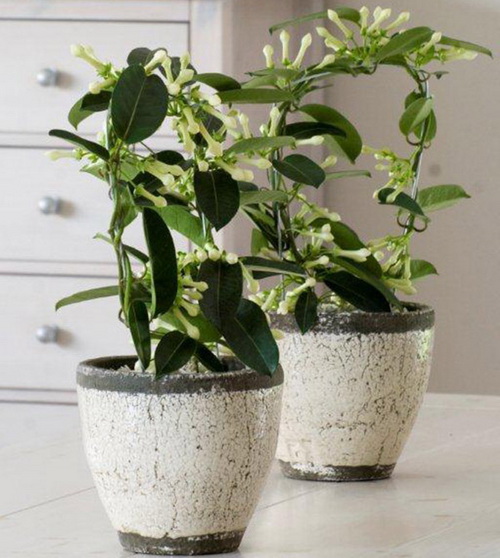
Stephanotis needs frequent spraying with water
Transfer.
A pot of small shape and size is suitable for a plant, one might say cramped. As the leaves grow and increase in size, it should be transplanted into another pot.
Reproduction.
Cuttings, dividing the plant.
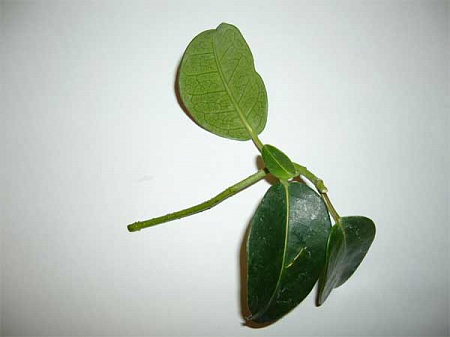
Stephanotis cutting
Cissus.
Cissus - indoor grapes, birch, grape ivy, as soon as this plant is not called.
Creeping shrub, in some cases may bloom, unpretentious heat-loving plant.
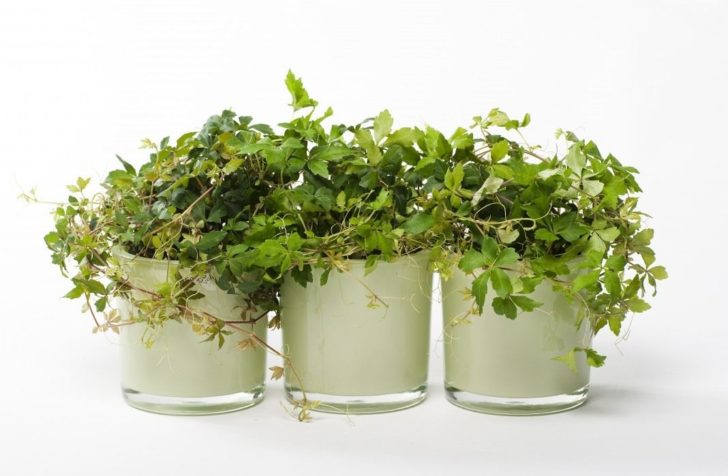
Cissus - unpretentious creeping shrub
Lighting.
Not picky about lighting, you can put the pot in the back of the room.
Watering.
How to water cissus? Due to the fact that the plant has many leaves, there should be regular and abundant watering in the summer. A little less in winter.
From time to time it is necessary to arrange a warm shower for the plant, if the room is very stuffy, then the plant must be sprayed with water.
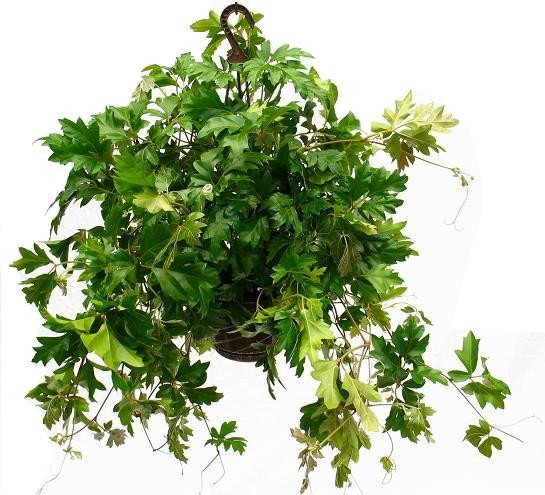
Cissus watered regularly and plentifully
Transfer.
Usually the plant is transplanted 1 time per year, if the plant is an adult, then 1 time in 2-3 years.
Reproduction.
Cuttings or division of the plant.
Most plants love light and gravitate toward it, but direct sunlight is detrimental to any houseplant. In strong light from the window space, the leaves burn out, lose their color, and burns may appear on the leaves and the plant may die.
Kitchen windows need to be blacked out. Also in the kitchen, it is necessary to install a hood over the stove, a special box (protection) must be installed on the battery so that warm air does not spread throughout the kitchen, and then to other rooms.
Over time, it is necessary to add new soil to the flower pot, as the old one sinks.
You can feed the flowers with minerals and fertilizers to improve the appearance of the plant so that the plant is healthy.
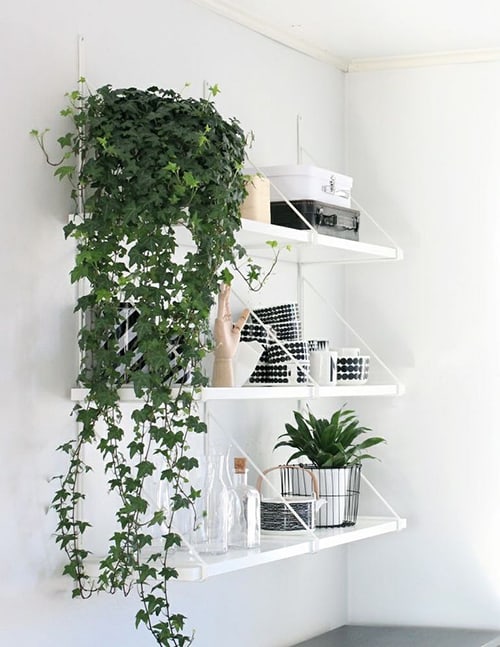
Ampelous flowers for the kitchen
For watering plants, boiled, filtered water, water from a well or melted snow is used. You can also pour ordinary water into a vessel, let it brew for several hours, and then water it.
You can buy plants for the kitchen in large stores in the flower department, in the flower market, buy from individuals through free classifieds sites.
With plants in the kitchen there will be clean and fresh air, buy indoor plants in your apartment, give them to relatives and friends, because flowers in a pot last longer than ordinary cut flowers!
On our website decortop.techinfus.com/en/ a lot of useful information: interior design of a country house, garden or apartment, workshops on creativity, landscape design, information about flowers.
back to index ↑Photo gallery - ampelous flowers for the kitchen
Video
